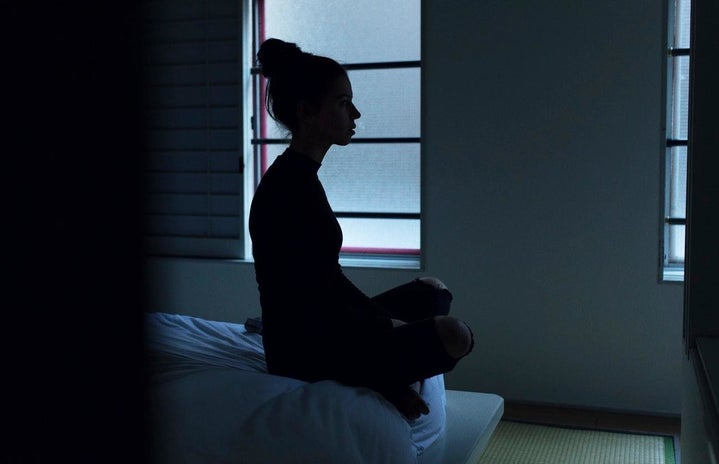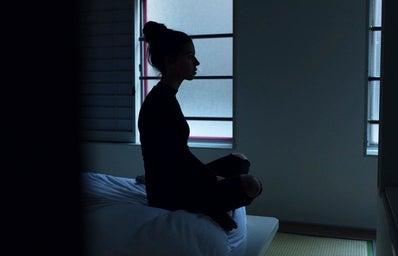From my very first week of class at McGill University, I had the sense that I was in the wrong place. I enjoyed learning in high school and felt like that would extend into my undergrad as well. However, when I started my double major in economics and international development, I felt the excitement and joy of being in a classroom disappear. All of my teachers in high school warned me that university was no joke – that the classes would get harder, the professors would care less than in high school, and that no one would be there to look out for me except for myself. Yet at the same time, my teachers promised me that it would be the best time of my life, so all the suffering would be worth it.
Unfortunately, this wasn’t the case for me. I worried something was wrong with me; that I wasn’t taking advantage of my experience enough. I felt like I was studying and working extremely hard, yet as the semester progressed, my grades continued to plummet despite my long nights at the library. Socially, I didn’t feel like I fit in. I had friends, yes, but they all seemed so happy in their programs and were very academically inclined. I felt like my creativity was stifled and everything revolved around regurgitating readings and memorizing notes.
Worst of all, I felt guilty, like I was abusing my privilege of being able to attend university by wanting to leave. When I thought about dropping out for too long, it would often send me spiraling down a deep, dark, anxious hole. What would I do if I wasn’t in school? What would my friends say? Would people see me as a failure? Would some see me as ungrateful? The more I thought about continuing with school, the more anxious I got, but the thought of leaving school was equally exhausting. I was afraid of the future and where I would end up, no matter which option I picked.
In high school, I had struggled with anxiety and would often have panic attacks, mostly brought on by school stress. When I got to university, I thought that I would be better equipped to handle them or they would start to disappear altogether. Instead, they intensified and became more regular. They would happen bi-weekly and would sometimes go on for a couple of hours. It felt like anything could trigger one in university: getting a C- on a calculus test, my friends going to the dining hall without me, saying something stupid in class, or drinking one coffee too many. My mental health became more and more precarious, and I didn’t seek out help, or take any steps toward getting healthy.
I continued on like this for two years. I stayed at McGill because I was terrified of what would happen if I took time off to figure out what I actually wanted. I didn’t listen to my gut, which told me from the very first day that I wasn’t in the right place. I continued to go to my classes, feeling isolated from my peers and withdrawing from my friends. I felt resentful of those who seemed to have it together because I absolutely did not.
In my fourth semester, after a particularly horrific panic attack, I called my mom. We spoke for a long time about how I was feeling, about my struggles with university life and my classes. She’d known how unhappy I was for a while, and when I told her I wanted to leave McGill, she was extremely supportive. Until this point, I had bottled up all of my emotions and true fears about my academic future. It felt fantastic to finally get everything off of my chest.
Leaving school was one of the most difficult choices I’ve ever made because it felt like I would be throwing away an opportunity that many people can only dream of. I am still cognizant of this, and I do not take my education for granted, but I was neglecting myself and my health for too long. University was putting a huge strain on my anxiety and overall self-esteem. I felt like a failure, like I didn’t fit in and that my life was pointless.
When I finally found the strength to leave, I moved back home and started working for the storefront of a bakery, where I worked for a year. I eventually applied to the creative industries program at Ryerson University – which I am currently in my first year of. That year was challenging for different reasons, such as being far from all of my friends and feeling like a bit of an outcast. It was hard to see everyone having fun while I was waking up at 5:00 a.m. to go wash dishes and serve people cupcakes.
What made everything worth it was my sustained focus on getting healthy. I started working out regularly (shocking as I was a kid who absolutely hated sports and gym class with every fiber of my being), which did wonders for my anxiety and made me feel strong. Most importantly, I started going to counselling. This helped me understand how to better manage my anxiety and gave me the space I needed to focus on what I truly wanted out of my life. Instead of focusing on the negative elements of my situation and past experiences, I focused on how I could transfer my interests and skills into a life that would work for me. I wanted to be in control of my experience if I ever went back to school, and I am happy to say I finally feel I’m in the right place.
If you feel like your university experience is worsening your mental health, I cannot recommend taking time off enough. I understand not everyone is in the same circumstances I’m in and that university is very much a privilege. But you are in control of your own life, and if you feel yourself slipping into a dark place, you need to take the necessary steps to get back to a healthier place. Your mental health should always come first. I wish I had been able to see that clearly when I started university.



